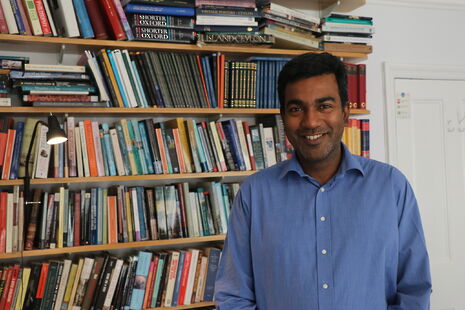Report finds few BME historians across UK universities
The new report released by the Race, Ethnicity and Equality working group found that 96.1% of university historians are white

The Royal Historical Society announced its launch of a new working group focusing on the challenges facing black and minority ethnic historians in UK higher education in May last year. The Race, Ethnicity & Equality (REE) Working Group published its first report yesterday.
The report found that 96.1% of university historians are white. Fewer than 1% of university historians nationally are black. It also noted that only 11% of history students are BME – well below the average of 25% nationally for university students.
One-third of BME respondents to the RHS survey reported witnessing “discrimination or abuse of colleagues and/or students based on race or ethnicity during their academic employment”, and 29.5% reported having experienced such discrimination themselves.
The Royal Historical Society’s report was drawn from a survey of more than 700 historians at UK universities, as well as one year of research. In investigating BME issues in the discipline, however, the working group found that, in many cases, “the data just [did] not exist, or if it [did] exist, [was] just not accessible”, the co-chair of the working group and a Gonville & Caius fellow Dr Sujit Sivasundaram told Varsity.
The working group’s report stated that “research and focus groups conducted by the RHS highlight the need for more diverse content of curriculums in schools and universities”, as well as for “historians to articulate more clearly the benefits of studying for a History degree to prospective and current BME students.”
Dr Sivasundaram, a reader in world history, expressed his opposition to the idea of BME history being treated as separate to other studies of history: “That, in a sense, is another form of narrowing of the curriculum: What we want is a really diverse range of history taught because it’s for all of us, it enriches all of us to understand history’s greatest width”.
“We need to diversify the histories that we tell about ethnic minority communities”
He further elaborated on the report’s recommendations of incorporating greater diversity of topics in BME history taught in secondary schools beyond the history of slavery: “The point we were making in the report is that we need to diversify the histories that we tell about ethnic minority communities, and slavery really has to carry on being taught in addition to other sorts of history.”
Reforms to the history curriculum have been underway in Cambridge, though he noted he still viewed progress needed in ensuring that intellectual discussions were “intersectional” of race, gender, sexuality, and class, and for a broadening of the curriculum to include more indigenous history, as well as a greater range of topics in the pre-colonial world.
“We’re at a point where history in Cambridge will once again change”. He added: “That is in keeping with the nature of what history is, really… to be open to more and more perspectives because those perspectives enrich our interpretation of the past.
“[Race] has been a silent issue for too long. And we just need to acknowledge it, and institutionally, set in place mechanisms to do so.”
In January, Dr Sadiah Qureshi, a senior lecturer in modern history at the University of Birmingham and member of the working group wrote: “Over two decades, I have only ever met two female professors of colour working as historians within Britain and a handful of men of colour.”
The report identified key factors contributing to the underrepresentation of BME academics in history departments across the UK:
- The narrow scope of the school and university curriculum if “programmes of study and research grounded uncritically in White histories and Eurocentric approaches to the past”
- Stereotyping of BME students’ and researchers’ interests
- Dismissive comments about BME historians’ language competence
- Funding constraints on research conducted outside the UK and a pervasive unwillingness to grapple with difficult histories
Its recommendations for active measures to improve ethnic and racial diversity aim to reverse what Dr Sivasundaram pinpointed as some of the structural impediments to greater BME representation in the subject: “The whiteness of the discipline and the classroom increases as we go further and further down the track, and what that generates in turn is the need to defend oneself, the need to, find one’s voice, in an increasingly white space as time passes by.”
 Comment / College rivalry should not become college snobbery30 January 2026
Comment / College rivalry should not become college snobbery30 January 2026 News / Downing Bar dodges college takeover31 January 2026
News / Downing Bar dodges college takeover31 January 2026 News / Cambridge for Palestine hosts sit-in at Sidgwick demanding divestment31 January 2026
News / Cambridge for Palestine hosts sit-in at Sidgwick demanding divestment31 January 2026 Science / Meet the Cambridge physicist who advocates for the humanities30 January 2026
Science / Meet the Cambridge physicist who advocates for the humanities30 January 2026 Lifestyle / Which Cambridge eatery are you?1 February 2026
Lifestyle / Which Cambridge eatery are you?1 February 2026










